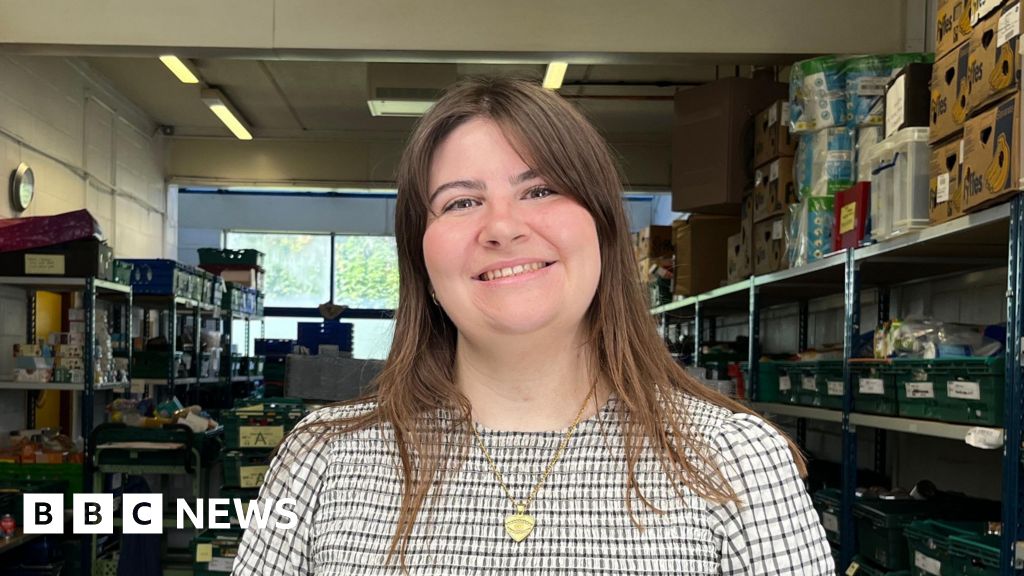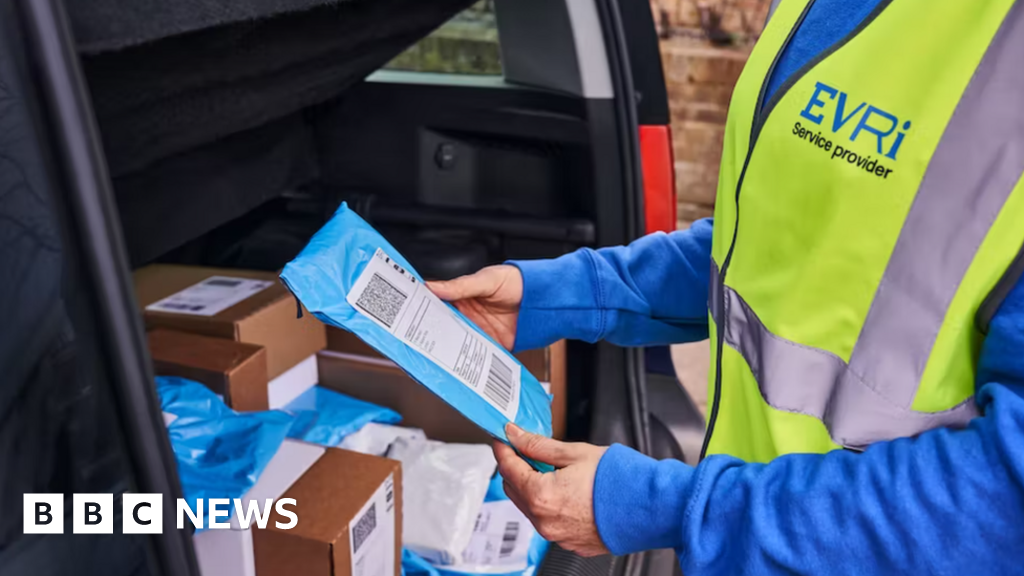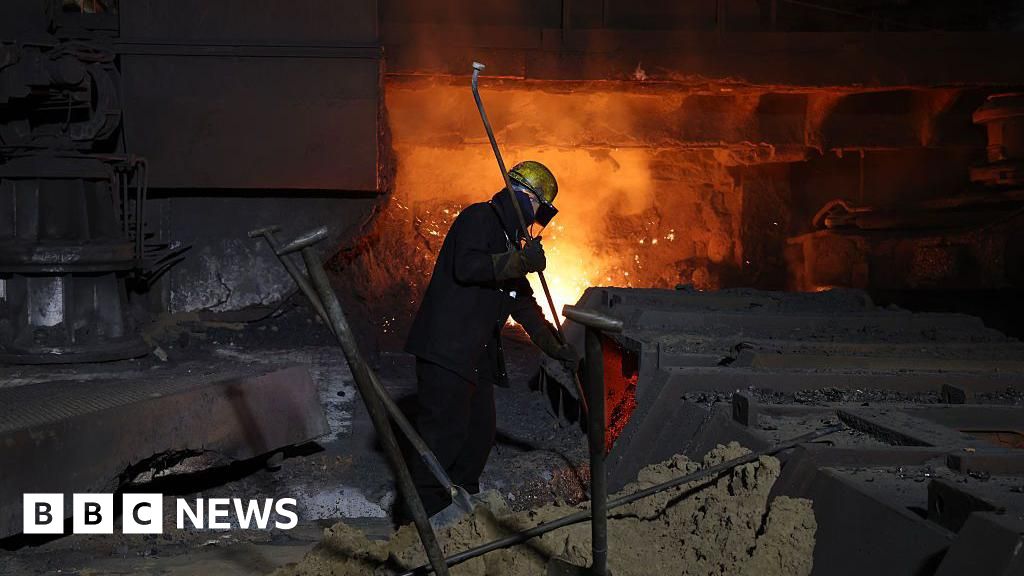ARTICLE AD BOX
By Stav Dimitropoulos
Business reporter
Image source, John Mendola
Image caption,John Mendola had his former dog cloned to produce these two genetically identical replicas, pictured
When John Mendola's beloved pet dog was diagnosed with terminal cancer he decided to have her cloned.
Mr Mendola is a retired New York police officer. Back in 2006 he was on duty at a station on Long Island when a small, scruffy stray dog was brought in.
"The dog was matted, you couldn't even brush her... and she had bad teeth, yet she was absolutely adorable and so appreciative," he says.
Coming off duty that day, Mr Mendola told his colleagues there was no need to take the white and brown furry animal to a shelter as he would take her home with him. "It was the best thing I did in my life," says the 52-year-old.
The rescue dog, a designer breed called a Shih Apso, loved children and playing. Mr Mendola named her Princess after the numerous heroines in Disney animated movies.
Image source, Getty Images
Image caption,Dolly the sheep, pictured, became the first cloned mammal when she was born in 1996
It was 10 years later, in 2016, when a vet had to give him the bad news that Princess had cancer. Mr Mendola immediately called a Texas-based company called Viagen Pets and Equine, which is the first and only US firm to offer commercial cloning of dogs and cats.
Mr Mendola says he knew about the process after watching a South Korean documentary on the topic. The Asian country is a leader in the field, and produced the first cloned dog back in 2005.
Viagen took a biopsy, or tissue sample from Princess before she passed away in 2017. From that genetic material two clones were subsequently born to a surrogate mother dog a year later. The puppies were genetically identical to Princess.
Mr Mendola named them Princess Ariel and Princess Jasmine, in another nod to Disney films.
"The spotting, the hair, everything is pretty much the same, even the mannerisms," he says. "You know how dogs sometimes get up and shake their whole body? They both do it at the same time, just like Princess did."
Image source, Getty Images
Image caption,The cloning process starts in a laboratory
The firm charges $50,000 (£38,000) to clone a dog, $30,000 for a cat, and $85,000 for a horse. That cost is obviously out of the range of most of us, but a number of famous people have revealed in recent years that they have had their dogs cloned, or were planning to do so.
That same year, The Sun newspaper reported that music mogul and talent show judge Simon Cowell was "100 per cent cloning" his three Yorkshire terriers.
Image source, Getty Images
Image caption,Barbra Streisand pictured with her former dog Samantha in 2006
There are a number of specific cloning techniques, but typically a cell nucleus from the animal you wish to clone is injected into a donor egg that has had its genetic material removed. The egg is then prompted to grow, in a laboratory, into an embryo. The embryo is subsequently implanted in the uterus, or womb, of a surrogate mother who goes on to give birth to to puppy, kitten or foal.
Blake Russell, Viagen's president, says the genetic material of the animal you wish to clone can be stored almost indefinitely before the cloning process takes place. This is thanks to the use of very low frozen temperatures, or cryopreservation.
"A cloned pet is, simply put, an identical genetic twin, separated by years, decades, perhaps centuries," he adds.
His company says it "is committed to the health and wellbeing of each and every dog and cat with whom we work", and it adheres to all US regulation.
Image source, Blake Russell
Image caption,Blake Russell, pictured here with a horse clone, says genetic material can be safely stored for many years
Yet animal welfare organisations have significant concerns about the sector. For example, a number of scientific studies have suggested that cloned animals are more prone to disease.
Other critics point to the industry's high failure rate - the large number of clones that are not born fit and healthy. One 2018 report by Columbia University in New York put the average success rate at just 20%. This means that you need numerous surrogate mums to allow for multiple attempts.
Penny Hawkins, an animal welfare expert at the Royal Society for the Prevention of Cruelty to Animals, says it can be painful and distressing for the female animals that have their eggs removed for donation, and for those that are prepared for surrogate pregnancy.
Additionally, a cloned animal is never going to be an exact copy of the original pet, predominantly when it comes to behaviour, she says. "There is so much more to an animal than their DNA, and cloned animals will inevitably have different life experiences, resulting in animals with different personalities."
Image source, Getty Images
Image caption,One of the criticisms of pet cloning is that it is not fair on the egg donors and the surrogate mums, such as this Labrador in South Korea that gave birth to two cloned beagle puppies
Dr Hawkins adds: "We would recommend anyone looking for a new pet to become part of their family to adopt one of the thousands of animals in rescue centres looking for their forever home."
Elisa Allen, director of animal rights group People for the Ethical Treatment of Animals (Peta), also wants people to get a rescue dog instead of a clone.
"Animals' personalities, quirks, and very essence simply cannot be replicated," she says. "And when you consider that millions of wonderful, adoptable dogs and cats are languishing in animal shelters every year or dying in terrifying ways after being abandoned, you realise that cloning adds to the homeless-animal overpopulation crisis.
"Peta encourages anyone looking to bring another animal companion into their life to adopt from their local shelter instead of fuelling cloning, a cruel moneymaking fad."
Geneticist, Andrew Hessel, counters that pet cloning comes with very few ethical concerns, if it is done responsibly.
"Someone might say 'why clone animals, when there are all these other animals available for adoption?'," he says. "Yet, you can make the same argument with human children.
"Why have your own child when there are all these children available for adoption? And pets also become members of the family."
New Tech Economy is a series exploring how technological innovation is set to shape the new emerging economic landscape.
Back on Long Island, Mr Mendola says that Princesses Ariel and Princess Jasmine are healthy and happy.
Before the original Princess died he adopted another rescue dog called Bebe. "When I brought the new puppies home, Bebe took to them right away," he says.
"She had missed Princess. She smelled them and she was happy. They are Princess."
Bebe died unexpectedly this year, but Mr Mendola was already prepared - he has some of her genetic material stored for potential future cloning.
Additional reporting by New Economy series editor Will Smale.

 3 years ago
33
3 years ago
33








 English (US) ·
English (US) ·